Space
Sign up for our newsletter
We summarize the week's scientific breakthroughs every Thursday.
-
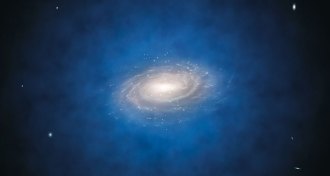 Particle Physics
Particle PhysicsClumps of dark matter could be lurking undetected in our galaxy
Dark matter, assumed to form featureless blobs, might clump together into smaller objects.
-
 Cosmology
CosmologyReaders wonder about the universe’s expansion and more
Readers had questions about the universe's accelerating expansion, a hidden void in the Great Pyramid of Giza and what happens to human waste in space.
-
 Astronomy
AstronomyThe X-ray glow keeps growing after the recent neutron star collision
X-rays from a neutron star collision have been getting brighter, and scientists are debating why.
-
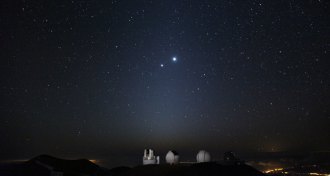 Astronomy
AstronomyStars with too much lithium may have stolen it
Some small stars have extra lithium before they grow old, suggesting they get extra amounts of the element from an external source.
-
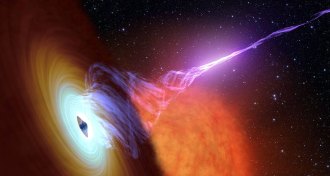 Astronomy
AstronomyMysterious high-energy particles could come from black hole jets
Three types of high-energy cosmic particles could all have the same source: black holes in galaxy clusters.
-
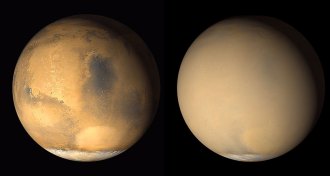 Planetary Science
Planetary ScienceMassive dust storms are robbing Mars of its water
Mars was once lush with water. A new analysis of Martian climate data shows a mechanism that might have helped dehydrate the planet.
By Dan Garisto -
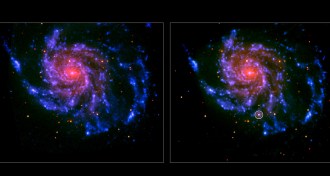 Astronomy
AstronomySpeed of universe’s expansion remains elusive
A discrepancy between two measures of the universe’s expansion rate suggests the presence of some unknown astronomical feature.
-
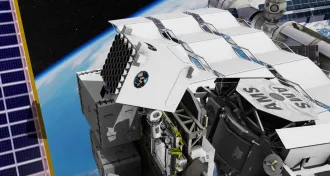 Astronomy
AstronomySpaceships could use blinking dead stars to chart their way
Timing signals from five pulsars allowed scientists to pinpoint an experiment’s place in space.
-
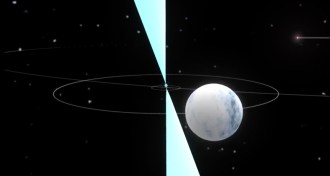 Astronomy
AstronomyTrio of dead stars upholds a key part of Einstein’s theory of gravity
A cosmic test fails to topple the strong equivalence principle.
-
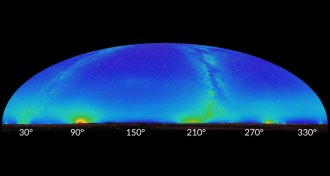 Astronomy
AstronomyPollution is endangering the future of astronomy
Astronomers discuss multiple threats from pollution that will make it harder to observe the night sky.
By Dan Garisto -
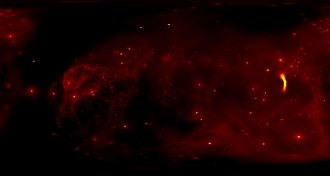 Astronomy
AstronomySee a 360-degree visualization of the center of the Milky Way
A 360-degree simulation, made with data from several telescopes, shows the center of the Milky Way as seen from the galaxy’s supermassive black hole.
-
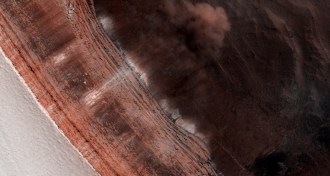 Planetary Science
Planetary ScienceShallow ice sheets discovered on Mars could aid future astronauts
Exposed water ice on steep Martian slopes suggest there’s a lot within a meter or two of the surface.